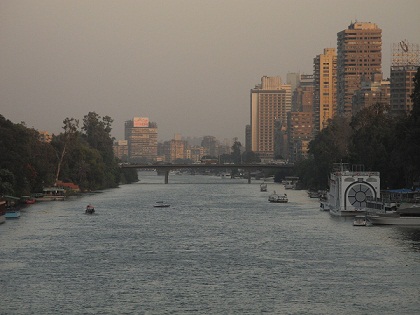St. Valentine, a martyred Christian saint in ancient Rome, could have never imagined how love would evolve into a force in international politics. He probably only knew love for God and for his fellow human beings. The notion of love for a nation, or love for the leader of a nation, would have been peculiar to him, since there were no nations in his day. While love can become a commodity on St. Valentine’s Day, which was celebrated on Wednesday, it can also be a commodity in international relations – often delivered, ironically, through the media. Media, when reporting on international politics, deal with binary oppositions – war versus peace, justice versus injustice, love versus hatred. Two events that demonstrate this relationship between politics, the media, and the theme of love and hatred were the execution of Saddam Hussein and its intensification of Sunni-Shia animosity; and the assassination of Rafik Hariri, and its exacerbation of Lebanon’s internecine conflicts. As I completed a year-long project on the themes of hatred and conflict in the Iraqi media, I noticed how various Iraqi and regional media reported on the intense love that existed for Saddam Hussein, and the intense hatred. This reality showed that even love, and unfortunately hatred, can be used by politicians and countries to justify their policies. Even Saddam wrote about love in his final letter before his execution. He told his supporters “follow love, pardon, forgiveness, and coexistence. After Saddam’s execution, the outlawed Baath Party released a statement that called upon the factions fighting in Iraq to “love one another and unite in fighting the United States. In this way they promised, “Iraq would return as the country of wellbeing and love. This love for Saddam was even expressed by a taxi driver in Egypt, who said, “We love Saddam because he was a courageous man who stood up before the tyrannical Americans and did not surrender, a view expressed by a good number of people in the Muslim world. Yet even Saddam’s opponents used love to justify his execution. An Iraqi parliamentarian declared that “all those who loved Saddam will join him on judgment day. The former Iraqi Prime Minister Ibrahim Al-Jaafari said that after Saddam’s death, “happiness, joy, and love would prevail in Iraq. After I finished my doctorate at Oxford, there were two countries I thought of moving to in order to teach: Turkey and Lebanon. In my heart I wanted to move to Lebanon. It is the country of my maternal grandmother – a Christian who died before I was born. When I was in Lebanon, I felt as if I could walk on the same earth as she did, drink from the same water, and feel her spirit. However, as much as I wanted to move to Lebanon, I knew deep in my heart that my grandmother’s country was never destined to enjoy peace and tranquility. On Hezbollah’s Al-Manar television station, a guest, Anis Al-Naqqash (who spent time in a French prison for his participation in the attempted assassination of the former Iranian prime minister, Shapour Bakhtiar), argued that the roots of these current battles are love – but a love that leads to obsession and fanaticism. He said, “It’s normal to love your family, your people, and your nation. Fanaticism is when you see the bad people of your group as if they were good people, and the good people of the other group as if they were bad people. This is fanaticism. In other words, he was arguing that there was no battle between Sunnis and Shias, Muslims and Christians; only between fanatics. Recently, a friend in Turkey, the country I’ve made my home for the past six years, asked me, “Why are you, an Iraqi-American, living in Turkey? I answered, “I love this country. She asked, “How can you love Turkey when you come from California, which is much nicer. I realized that my friend was taught to love her country from the time she was born. My love for Turkey was not. It was something learned. I love it like an elusive woman, always hoping that one day she will love me. But this love also continues to be a struggle, even as I never take it for granted. And perhaps that way of thinking is the solution to the Iraqi conflict and the Lebanese crisis. I spent this week’s Valentine’s Day thinking about a relative of mine in Iraq who was killed last week while buying vegetables in a market. As an Iraqi Shia, it would be easy for me to hate the Iraqi Sunnis, some of whom were blamed for taking part in that attack. But I don’t. I struggle to remind myself of what unites the Iraqis as a people. I struggle to remind myself of the love I have for the Iraqi Sunnis and Kurds who have married into my extended family. I struggle to remind myself of my love of Lebanon, the land of my Lebanese Christian grandmother. My only wish on this year’s Valentine’s Day was that Iraqis and Lebanese could learn to struggle in love.
Ibrahim Al- Marashi is an international policy fellow at the Center for Policy Studies in Turkey. He is working on a study of the Iraqi media. He wrote this commentary for THE DAILY STAR.

